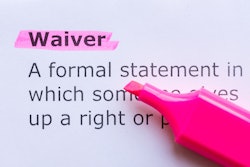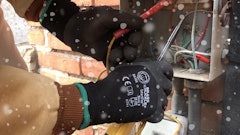A subcontractor who executes a lien waiver as part of a progress payment request may partially waive its right to file a mechanic's lien for additional work it performs on a project. This lesson is illustrated in the case of RMF Industrial Construction, Inc. v. Reliant Energy Seward, L.L.C., 2006 U.S. Dist. Lexis 6056 (W.D. Pa. 2006).
The case
In this case, a power plant owner retained a contractor for the construction of a new power plant. The contractor entered into a purchase order agreement with a subcontractor to erect and install circulating fluidized bed boilers and associated systems for the power plant. Over the course of the project, the subcontractor executed lien waivers as part of its monthly progress payment requests to the contractor.
As the work progressed, the subcontractor experienced delays and incurred additional expenses on the project as a result of harsh winter conditions, a lack of site maintenance and schedule delays caused by the contractor. The contractor eventually terminated the subcontractor from the project. As a result, the subcontractor filed two mechanic's liens against the owner to lien the power plant property in the amount of the additional expenses the subcontractor incurred on the project. The owner responded by filing a motion to reduce the amount of the subcontractor's mechanic's lien to the extent of the waivers executed by the subcontractor.
The subcontractor argued that the lien waiver language in the progress payment applications did not apply to additional/unforeseen expenses incurred due to various problems outside the subcontractor's control. The owner argued that the subcontractor waived its right to lien the property when it submitted monthly progress payment requests with the lien waiver language. The owner further argued that the subcontractor waived its lien rights, except to the extent of the subcontractor's right to claim a lien for certain contract work or change order work which was expressly reserved by the lien waiver language.
The court's decision
The court found that the disputed amounts did not arise out of contract work; such amounts were not within the original scope of work outlined in the purchase order agreement. Further, the court noted that under the subcontract the contractor had the sole authority to authorize a change order, but never issued the subcontractor a change order to increase the scope of work. As a result, the disputed amounts did not arise out of change order work performed by the subcontractor and did not fall under the exception contained in the lien waiver language.
Accordingly, the court ruled that the subcontractor, by executing the lien waivers, waived its right to file a mechanic's lien for the additional work it performed on the project. The court found that the subcontractor partially waived its right to place a lien on the power plant because the additional expenses incurred by the subcontractor were not covered by the exceptions contained in the lien waiver language. So the court ordered the subcontractor to reduce the amount of its mechanic's lien.
Accordingly, subcontractors should be careful to ensure that partial lien waivers do not foreclose the ability to file a mechanic's lien for additional work performed on a project.
Gerald I. Katz is an attorney specializing in construction law throughout the United States with Katz & Stone LLP, Suite 600, 8230 Leesburg Pike, VA 22182.


















